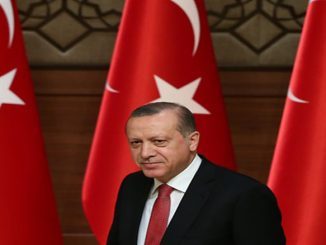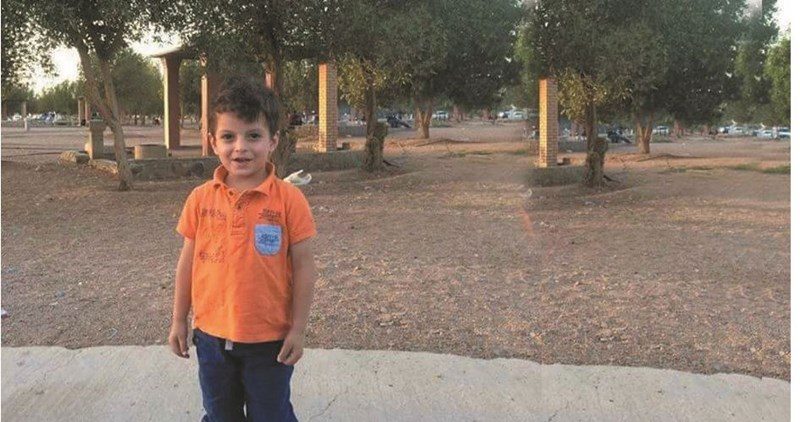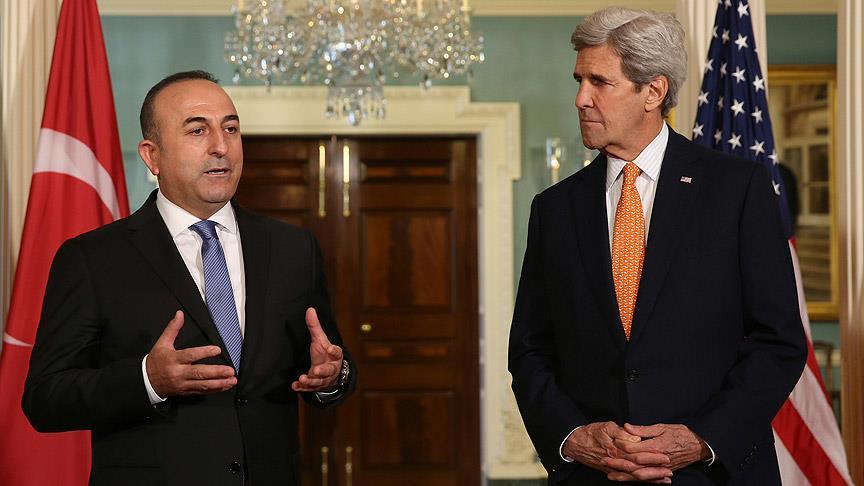
BY: Merve Şebnem Oruç*
Eyes are on Iraq, the () Mosul operation is on the agenda. Is it going to happen or not? If it is going to happen, who will be participating? Are the Shiite militias or the Kurdistan Workers’ Party (PKK) in the U.S.’s operation plan? What will be Turkey’s attitude? How will the Ankara-Baghdad ties that have become intense once more due to a second Bashiqa crisis affect the development process of the operation? The answer we have been discussing since last week and seeking within the context of this and similar questions is actually whether the U.S. and Turkey can reach an agreement on Iraq. With the failure of the July 15 coup attempt and Turkey launching Operation Euphrates Shield immediately after it seems, for now, Baghdad is the puppet administration left in the U.S.’s hands and this time it is trying to push Turkey through the Iraqi Central Government.
However, on the other side, there are critical signatures made between Turkey and Russia, which is beyond rapprochement and can be described as a “game changer.”
As you know, this week, Russian President Vladimir Putin came to Turkey within the scope of the 23rd World Energy Congress that took place in Istanbul. Putin also had a critical meeting with President Recep Tayyip Erdoğan. The two leaders who reached an agreement under headlines such as natural gas discount, citrus import, Akkuyu Nuclear Power Plant, cooperation in the defense field and even Russia applying for Turkey’s space operations, announced that the Turkish Stream agreement was signed. What makes this meeting historic is the Turkish Stream going beyond discourse, wishes and political messages. Also, this agreement indicated that the normalization in Turkey-Russia ties were now complete and had entered a rapprochement phase beyond normal.
An agreement was signed between the governments in July 2009 for the famous Nabucco pipeline to carry Central Asia and Middle East natural gas to EU countries through Turkey. This line was going to provide an alternative to the Russian natural gas sent to Europe and break Europe’s dependency on Russia. Hence, the project was greatly supported by the EU and U.S.
However, of course this situation did not serve Moscow’s interests. Russia first reached an agreement with Germany and started to install a new pipeline called North Stream to Europe from the Baltic Sea. The first section of the pipeline was opened in November 2011. In addition to this, Russia intended to install another natural gas pipeline called South Stream. This pipeline was going to carry gas from the Black Sea to Bulgaria and from there to Europe through Serbia, Macedonia and Slovenia. And this would be Russia’s response to Nabucco. The pipeline started to be built in December 2012.
However, the project was canceled due to the tension between the EU and Russia as a result of the Ukraine crisis. Following the harsh economic sanctions on Russia by Europe, Moscow decided to cancel the project in December 2014. Putin, who visited Turkey in the same period, announced the cancellation of the South Stream at the summit held with President Erdoğan and gave the news of a new line. The name of this line was “Turkish Stream.”
Even though Turkey is a poor country in terms of energy, it is in an extremely valuable position in terms of the passage of energy pipelines due to its geographical position and is a candidate country to become one of the big players of the energy distribution market. In addition to the Shah Deniz Natural Gas Pipeline, the Trans Caspian, the Turkey-Iran and Turkey-Iraq Natural Gas Pipelines, TANAP, TAP and petrol pipelines which have been worked on for a long time, Turkey was going to start to become a major authority in the energy market with Turkish Stream. The two countries that have long been considered rivals in natural gas delivery to Europe and which have constantly been trying to bypass one another were going to cooperate in this area.
The Turkish Stream was suspended with the ties freezing between the two countries following Turkey’s downing of the Russian jet that violated Turkey’s airspace in November 2015. However, even though the announcement of the Turkish Stream had created great interest and excitement, the realization of this project was not considered very likely. There were many who considered this as a political message and conjunctural threat by Ankara which has been stooped by its Western allies for almost two years and Moscow which is angry at Europe due to Ukraine. The truth is; while both countries’ approach toward Syria is completely opposite and it is not possible for them to entirely trust one another since Turkey is a NATO member, it was quite normal for it to be like this.
However, things changed after July 15. Even the blind saw that Turkey is face to face with an intense attack from the U.S., that the U.S. is behind the plan to crush Turkey between three terrorist groups, the Fetullah Terror Organization (FETÖ), the Democratic Union Party (PYD) and Daesh, let alone its rival from the Cold War see it. The convergence that started between Russia and Turkey as of May gained greater pace following the failed coup attempt and reached this point. As they say, “what doesn’t kill you will make you stronger”; the ground on which the two countries’ relations are standing is much stronger today compared to before the jet crisis. Hence, the likelihood of this agreement reaching a final this time round is much greater.
Yet, it is certain that this development is added to the list of developments that do not please the U.S. and that the country is not going to just sit and watch. The codes regarding the other parts of the puzzle, in other words the course of developments related to how the natural gas in the Mediterranean will be delivered to Europe are going to be discussed in today’s meeting between Israeli Energy Minister Yuval Steinitz who will be arriving to Turkey today and Energy and Natural Resources Minister Berat Albayrak. And let’s see… how will the picture in the Middle East be affected by these developments?
*Merve Şebnem Oruç is a Turkish journalist and columnist.
(Published in Yeni Şafak Turkish newspaper on Thursday, Oct. 13, 2016)



